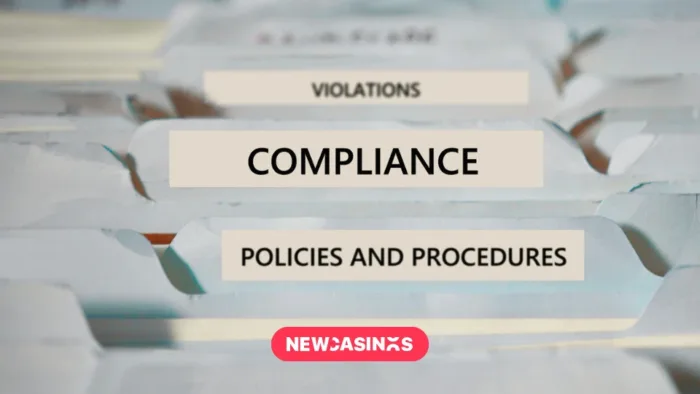What Is AI-Powered Responsible Gambling?
AI has entered the iGaming scene in multiple ways, but there has been a big shift towards how it can be effectively used as a tool to combat gambling-related harm. Through real-time monitoring, players’ habits can be tracked and when patterns of play are perceived as negatively impacting players, the AI software triggers tools that intervene in hopes of minimising harm.
AI can be programmed to monitor specific habits, such as session length/frequency, spending patterns, behavioural changes and win/loss ratios. One of the main appeals of using AI to monitor gambling habits is that it can be tracked in real-time, rather than once it is too late. The majority, if not all, online casinos offer a human customer support team. The introduction of AI alleviates pressure on these teams as concerns about negative gambling habits rise.
How Real-Time Monitoring Actually Works
AI intervention can look different depending on the regulatory body – UK players will be assessed differently to their Swedish cousins – but in all cases, individuals’ playing habits, spending habits, and losses are tracked to generate a risk assessment. The results of this risk assessment trigger an intervention tactic, such as the following:
- Personalised messaging systems
- Cooling-off periods
- Automatic limit adjustments
If the AI intervention messages are unnoticed or ignored by players, it is the responsibility of a human customer support agent to reach out. This blend of AI with a human touch means that players can be signposted to possible support. There is no full dependency on AI to pick up patterns and handle interventions, which is why the UKGC, one of the strictest iGaming regulators, has continued to work behind the scenes to increase player safety.
AI pattern recognition should not be perceived as spying, but rather as a helpful companion that can be used to enhance awareness. For example, if you are approaching your loss limit, you might expect a gentle reminder that this limit is nearly being reached. This message can be paired with a check-in on well-being.
New UKGC Rules Driving AI Adoption
With AI integration growing, companies have had to navigate how to productively use AI systems. Unfortunately, AI has created new challenges for the gambling industry, including the use of AI-generated documents to circumvent AML (anti-money laundering) checks.
The UKGC has been exploring the use of AI to enhance player enjoyment and safety. In a post-pandemic world, research shows that up to 1.4 million people in the UK experience gambling-related harm, and this number is only expected to rise. All UKGC licensed casinos must adhere to mandatory responsible gambling tools or information, such as self-exclusion, reality checks, additional tools (deposit limits, loss limits,) and advice from external organisations (such as GamStop, or GamCare).
Earlier this year, the UKGC introduced a mandatory vulnerability assessment for players depositing more than £150 every 30 days. The plan is to build a relationship with customers from the moment they register and mitigate the potential of gambling-related harm. With the fear-mongering around AI, the message needs to spread that these tools that rely on AI monitoring are solely in place to protect players from gambling-related harm without increasing the pressure on human customer support staff.
Using AI to aid responsible gambling is intended to be productive, but it is difficult to ignore the growing anxiety surrounding AI. Players could potentially find the intervention too invasive, which may add to the fear of people turning to black market alternatives because they don’t require the same regulations. Pressure’s on for the UKGC to successfully demonstrate that AI is protecting customers from gambling-related harm.
Is AI Making a Difference?
AI is a new feature in responsible gambling tools. Finland has been using AI technology to recognise negative gambling trends since 2021, and is only now noticing the positive effects with a 25% decrease in problem gambling. Finland placed a heavy influence on using the self-exclusion tool to minimise the number of people able to access gambling, and while this has proved effective in that market, are there better approaches that minimise harm from the outset?
The UKGC is considering introducing an early intervention response. So far, the UK has seen a year-on-year increase in users opting for self-exclusion schemes as their preferred method of intervention. It is hoped that the introduction of AI using real-time alerts can create healthy gambling habits – such as players setting deposit limits and sticking to them – rather than excluding players.
What This Means for UK Players
Day-to-day gambling won’t change drastically, especially as responsible gambling has been a mandatory part of online casinos since the Gambling Act 2005. As long as players are not showing signs of gambling harm, they will not even recognise that AI detection is happening in the background.
For UK players, on-site tools are available to monitor and limit their own gambling behaviour. This means setting limits, sticking to them, and regularly checking in to ensure that the limits don’t need adjusting. If you are receiving pop-up messages and reality checks, take notice of them and reflect on your behaviour. Most UKGC-licensed casinos will have a self-assessment tool that consists of around ten questions that can help determine if you may need to reassess your habits or reach out for additional support.
Before AI, tools and support were in place to help players, and this remains the case. AI is not there to judge playing habits. Its main function is to recognise when player habits match pre-determined gambling patterns that are considered ‘bad’ (or changes in players’ gambling that may be harmful). As long as you’re playing responsibly, you won’t even notice that AI monitoring is happening.
Privacy and Trust Considerations
Many concerns surrounding AI monitoring stem from the perception that AI is invading players’ privacy and impeding their gaming experience. For the UKGC to roll out AI software that can oversee players’ behaviour, privacy laws require them to have strict data protection compliance. Tools must not encroach on players’ personal lives.
Players are encouraged to set limits for themselves. By doing this, it limits the potential of AI monitoring to flag unusual behavior. If you set realistic limits and stick to them, you can play with the peace of mind that you are doing so responsibly.
Discover the Latest Casino News






